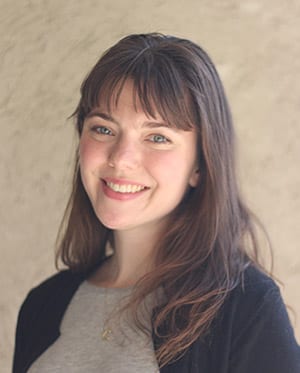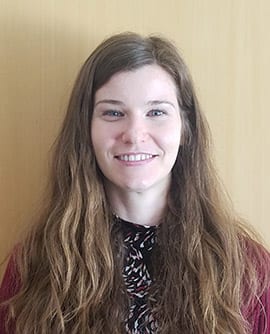By Andrew Cohen

The old starving student stereotype is apparently hitting close to home for a lot of UC students. A recent study found that nearly a fifth of California public university students do not get enough to eat.
According to the study, 19 percent have endured “very low” food security—defined by the U.S. Department of Agriculture as experiencing reduced intake at times due to limited resources. An additional 23 percent reported having “low” food security, which includes reduced quality, variety, or desirability of diet.
“The underlying causes are rising income inequality and the rising cost of tuition,” says Caroline Soussloff ’20. “At its core, this is an education equity and college access issue. The students most impacted are first-generation students, LGBTQ students, students of color, former foster youth, those transferring in from community college.”
To combat this problem, Sousloff, Alexis Bramhall ’20, and Callie Davidson ’20 co-lead the Food Justice Project. Last spring, along with classmates Sung Choi and Abigail Burman, they worked with Pro Bono Program Director Deborah Schlosberg to launch FJP as part of Berkeley Law’s Student-Initiated Legal Services Projects.
Members conduct one-on-one and group know- your-rights presentations for undergraduates applying for CalFresh, known federally as the Supplemental Nutrition Assistance Program (SNAP), and help rejected applicants file appeals.

They have also begun engaging in policy projects with the help of EBCLC attorney Nora Wilson and others. In the fall, FJP group co-sponsored a Public Comment Writing Party to voice opposition to a proposed public charge rule that Soussloff notes “would count critical benefits like SNAP and Medicaid against you for immigration purposes.”
Helping fellow students
CalFresh provides monthly food benefits to low-income individuals and families, enabling them to buy nutritious foods for a better diet. The amount of benefits received depends on household size, countable income, and monthly expenses such as housing and utilities.
“Surprisingly, often people will be rejected incorrectly,” Bramhall notes. “Caseworkers can get confused by the special rules for students, or applicants who meet all the requirements forget to send in a document they need to verify something on their application. There can also be issues when it comes time to recertify, which you’re required to do multiple times a year.”
Bramhall adds that grace periods for late submissions are sometimes ignored, cutting off benefits too early. Counties are also required to determine eligibility within 30 days, but sometimes miss that deadline or lose applications completely.
“In these cases, the county often encourages people to just start a new application, but it’s better to appeal,” Bramhall explains. “Appeals matter because applicants who win them are entitled to retroactive benefits starting the day they applied.”
Team building

FJP students commit to at least nine hours per month to help fellow UC students access these benefits. They are supervised by Erin Le, a Berkeley Law lecturer and lawyer at the East Bay Community Law Center, which hosts the group’s clinics and meetings.
The group’s leaders came to this effort from different backgrounds. Soussloff was a teacher and worked with a nonprofit that manages New York City’s Save for College Program. Bramhall spent years at an organization that helps low-wage workers and their families enroll in Medicaid, SNAP, and other public benefits. Davidson worked for UCLA’s Social Welfare Department, evaluating the effectiveness of social services.
They now partner with UC Berkeley’s Basic Needs Center, which hosts clinics to register qualified students for Calfresh/SNAP benefits. FJP’s walk-in clinics and individual meetings help students get in touch with the right parties at the county.
In addition, the group advises undergrads on what to expect during the opaque appeals process, how to advocate for their benefits, and how to prepare if their appeal leads to a hearing.
Davidson calls food security public benefits “critical” and an “effective poverty-alleviation tool. They should be normalized, especially in an ‘elite’ educational setting.”